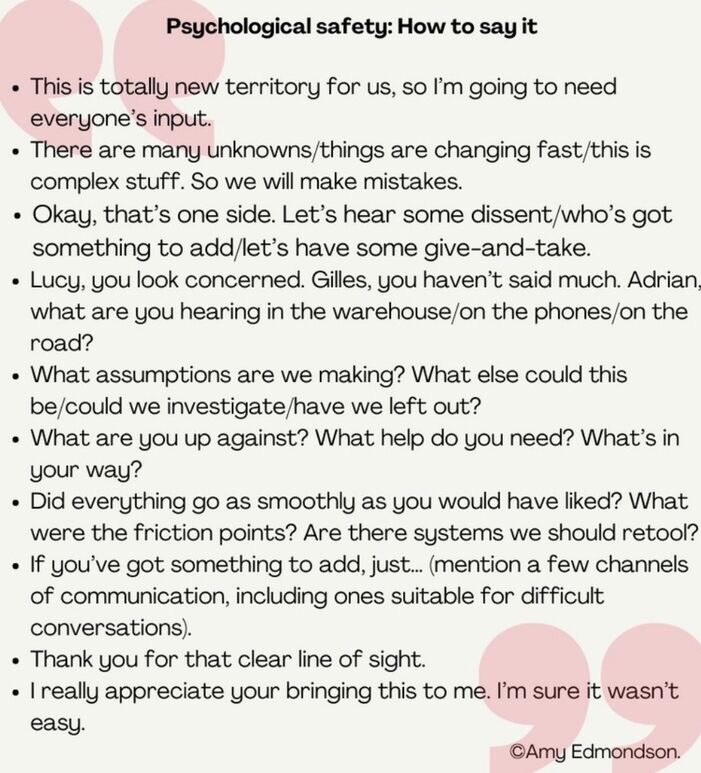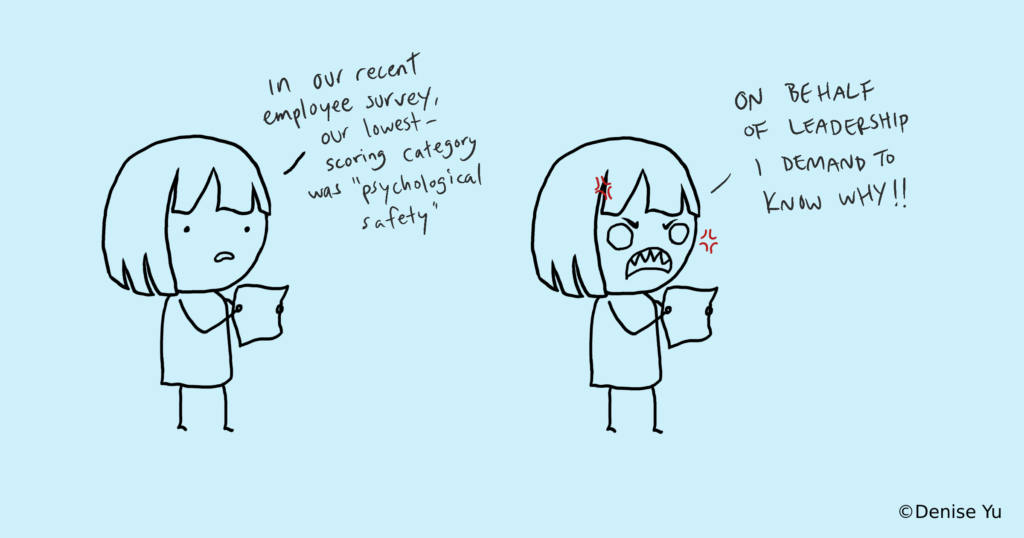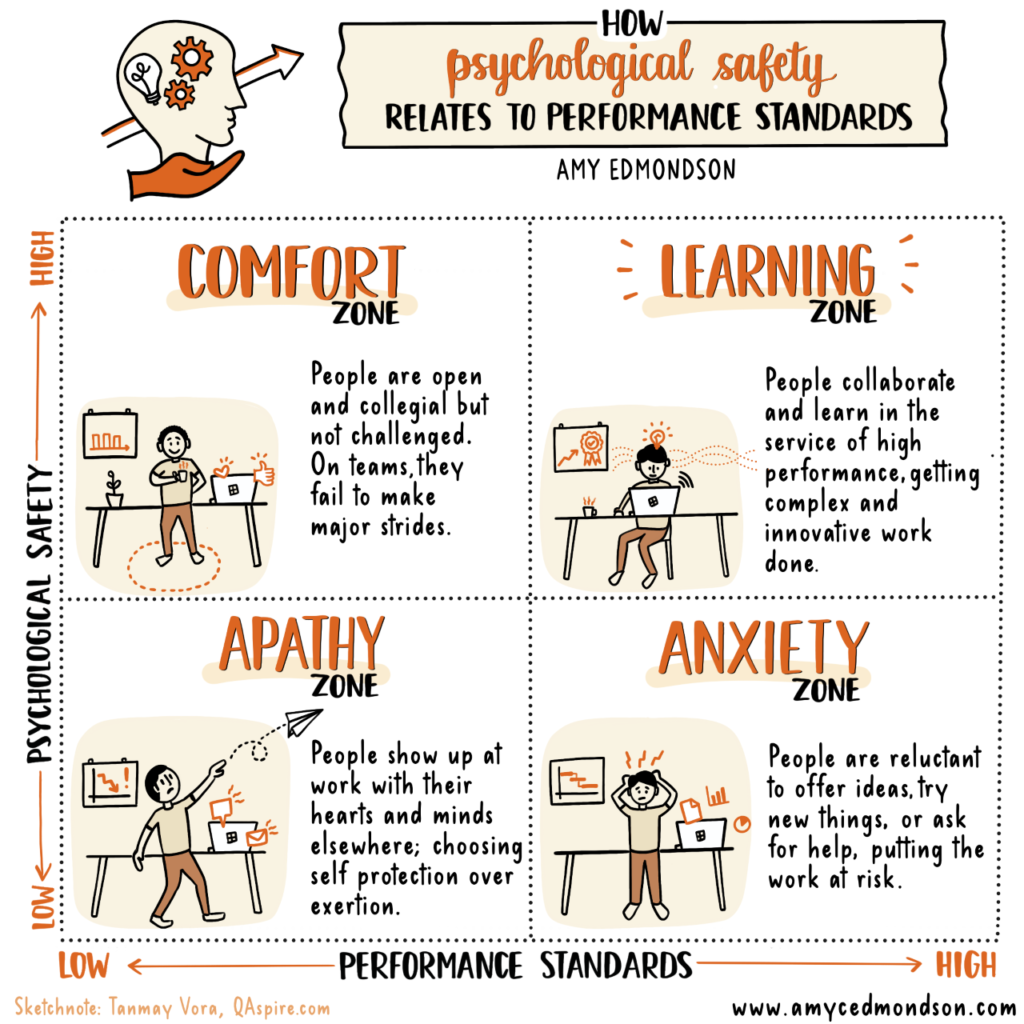Do this, not that
Two images that are worth a thousand words.


This is the article I’d have written myself, if only I knew things about improv! FANTASTIC table here expressly linking #improv to concepts from my book #TheFearlessOrganization. You won’t regret taking a peek.
psychologicalsafety #intelligentfailure
A common misperception about psychological safety is that it means lowering standards, giving up on accountability, or “wrapping teams in cotton wool,” as Dan Cable of London Business School puts it.
I have spilled a great deal of ink correcting this notion. Being a social scientist, I also love a good 2 x 2 matrix. Here’s mine, brought to life by Tanmay Vora, sketchnote artist supreme.

Clearly, the place to be is the upper right quadrant, where people are not afraid to have the difficult conversations that bring real progress. Those conversations flow upward as well as downward, in an atmosphere of respect that also flows both ways.
Glad that’s settled, right?
Just kidding… it’s a very sticky misperception that is no doubt here to stay.
How a leader takes responsibility: They admit fallibility. They ask forgiveness. They explicitly create space for speaking up.
And they mean it!
It’s almost like #TedLasso has been studying The Fearless Organization. Chapter 7, The Leader’s Toolkit, to be precise.
If only. But the message is there and that’s what counts.

I’ve been thinking about #TedLasso’s biscuits with the boss.
It’s a pretty bold culture change initiative that goes in a non-traditional direction: upwards.
In real life, managing up is tricky.
It helps to have Ted’s fearlessness and force of personality; it helps to have Ted’s race and gender. It helps to be in upper management, like Ted.
But in a climate of good #PsychologicalSafety, you can almost see it working.
@WorkFearlessly #CultureChange#LassoLeadership
@TedLasso #managingup#biscuitswiththeboss

Be the change you want to see at work.

I am often asked: How do you cultivate psychological safety on your team when you’re not the boss?
If you’ve read the latest thinking on management practices, you have encountered the term “psychological safety.” In a nutshell, it means that employees feel able, and even obliged, to speak up without fear of reprisal. It’s been identified in research (by me, others, and a high-profile study at Google) as the vital characteristic underpinning the highest-functioning teams.